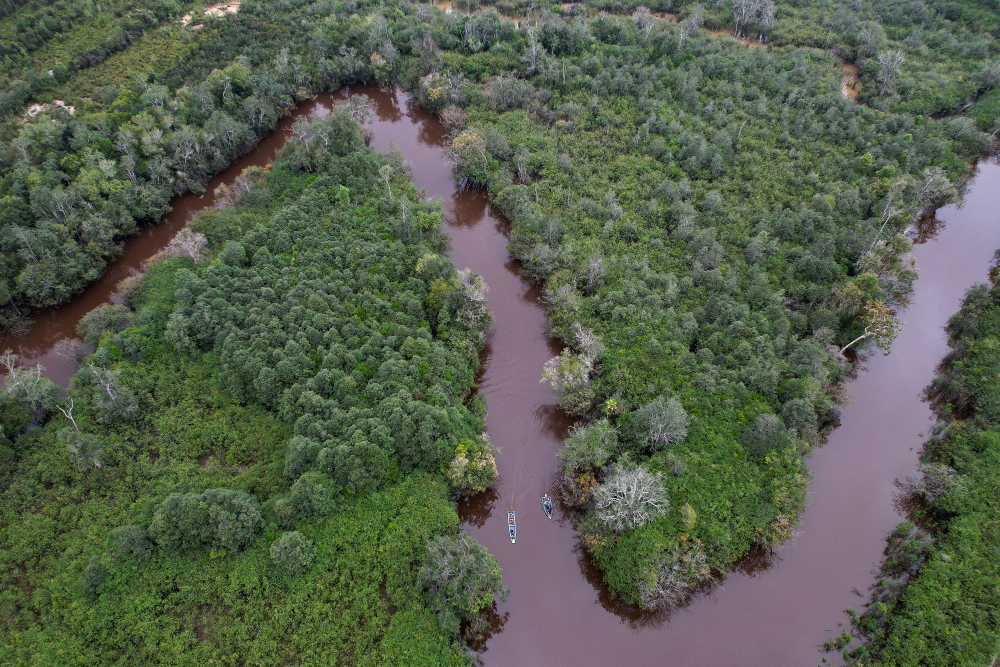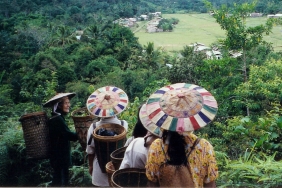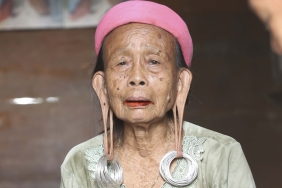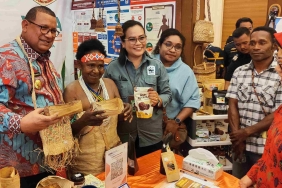State Recognition of Villagers' Resilience
The face of Sintang Regent Jarot Winarnotlooked is happy. On a sunny day, the regional head of Sintang Regency in West Kalimantan Province was elated after seeing firsthand the achievements of his citizens. Stepping on the wooden slats that support his body while on the brown water, Jarot witnessed the harvest at Lake Jentawang. This inland water area is in Jentawang Hilir Village, Ketungau Hilir District.
Jarot was so happy to see the results of the residents' catch on June 6, 2023. Various types of freshwater fish were caught. There were lais, belidak, toman, gabus, patik and baung. The number could reach hundreds of fish.
When witnessing the fish harvest, Jarot was accompanied by the Chairman of the Sintang Regency DPRD, Florensius Ronny. On the same occasion, Jarot handed over Sintang Regent Decree Number: 523/1300/KEP-DKPP/2022 on the Determination of Jentawang Lake Area and Zoning to the Jentawang Hilir Village Government.
The villagers' achievement made Ronny beam. To the journalists who interviewed him, the politician born in Nanga Silat, on May 30, 1989, expressed his gratitude to WWF-Indonesia. Thanks to their cooperation, the villagers of Jentawang Hilir can manage the lake sustainably.
"I appreciate WWF for assisting the community in Jentawang Hilir. Hopefully, they will continue to work together. On behalf of the Chairman of the Sintang DPRD, I would like to say thousands of thanks. Do not stop only in Jentawang Hilir, we hope to expand to other lakes, Ronny told reporters who followed the harvest with villagers.
Lake Jentawang has been under threat of environmental degradation for years. There are many accompanying problems, ranging from illegal mining, land exploitation for oil palm plantations to fishing by electrocution and tuba.
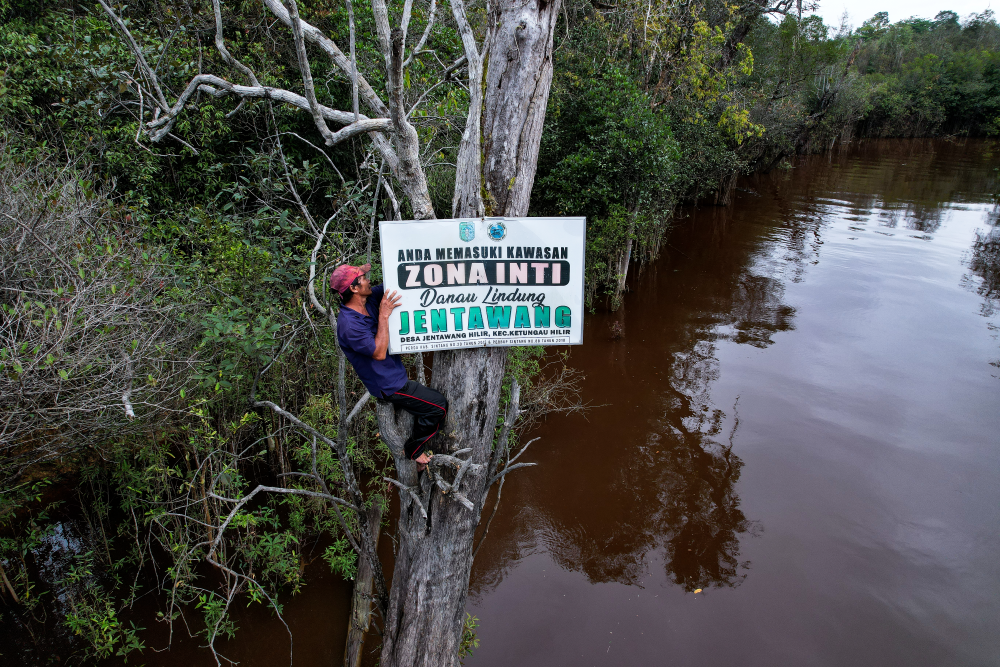
The pride of state managers and people's representatives certainly rubbed off on the Chairman of the Danau Batu Nyadi Institute Yoshua Arai. As a community leader, the man born in 1978 recounts the process of harvesting fish that has been running three times. "During the first harvest, I was preparing for the Regent's welcoming ceremony. So I wasn't too busy in the water," Arai said.
"During the third harvest, it was more than the second harvest, because people already knew the story from the second harvest, the appearance of the fish was abundant. Now we want to test it again in the third harvest, it turns out that the fish are indeed very large. We started at 9 am, we finished at 2 pm. Some people said, come on, we're still looking for more. I said, stop. Because of our system, we share the results."
The man who works in the fields and gardens daily explains the profit-sharing system they use during the harvest. "We give the results of 150 or 600 kilos to all those who attend. For example, if there are two or three people in one family, only two people can share it, only two families, only two people."
Arai's last education only reached the elementary school level. However, he was able to lead a conservation organization that continues to encourage villagers to manage the lake sustainably. Arai is also a witness to the past condition of Lake Jentawang.
"According to the stories of our elders, Jentawang is famous for its natural resources, such as fish. Because in the 1980s I remember very well that there were quite a lot of fish in the Jentawang River, sir. Quite a lot."
"In the past, we didn't know much about 'serpang' to look for fish, so we used machetes. If we fish at night, we use the machete. Finding 5-6 kilos is very easy. We just choose the fish we want to eat, and that's what we take.
Then, Arai told me about the mentoring process conducted with WWF-Indonesia. At first, the villagers drafted the regulations. In a marathon meeting, the participants agreed that deviant behavior in harvesting or taking fish must be eliminated.
"With the existence of village regulations (perdes), such as penubaan, although penubaan is traditional is a legacy passed down from generation to generation from the ancestors or forefathers of the Dayak tribe to rain and moisten the land of the Dayak tribe. Therefore, this tradition is only held in the dry season. The fish menuba tradition is a ritual carried out by the Dayak tribe by poisoning fish using tuba root, but it still damages and still kills the whole fish. That's why we made regulations. Then we made the next regulation too, in the village regulations we stated that excessive fishing using warin (jermal) is also prohibited and we regulated the village regulations so that we no longer use the smallest size fishing gear such as warin," Arai explained at length. The regulation also regulates fishing gear. Trawls measuring two and a half inches are no longer allowed.
Arai admits that at the beginning of the drafting he had not followed it. At that time, customary chiefs and community leaders were present along with the village head. They gathered to listen to explanations on how to restore the environment that was threatened with damage, make regulations, and pour out the contents. Arai started attending meetings when the regulation was half-finished. He played an active role in selecting which parts needed to be revised or added to make it stronger.
Once the drafting of the regulations was complete, the Batu Nyadi Lake Institute moved quickly. They conducted socialization with residents. The explanation of the rules emphasized the division of zones that they had developed to manage Lake Jentawang sustainably.
"We have determined, that this is the protection zone. This is the core zone. Then people ask, what about it, if there is already a protected lake, if there is already a core zone, what about the community, so indeed we prohibit activities in that zone, we prohibit it completely, both outsiders and insiders. Anyway, it is forbidden to carry out activities in the core zone," Arai explained.
The regulations they have drafted are very important for all levels of society to know. This is because they want the quality of the ecosystem around their residence to recover. "So there is no excuse, oh I don't know this regulation. Residents who attend must be able to socialize with neighbors and family, so that everyone knows, oh this point not allowed to carry out activities."
With the joint regulation in place, residents want the next generation to remain familiar with the local fish species that they can easily obtain in the Jentawang water system. Although no one has yet taken up the profession of fishing, the introduction of local fish species plays a key role in future conservation.
"We just want our fish to survive and even thrive. In the Jentawang Hilir Village area, no one relies on fishing for their livelihood. So everyone is still farming, everyone is still a laborer, gardening, so if you want to find a job, expecting a job as a fisherman, there is no one," Arai explained carefully.
This friendly man expresses hope for the future. He wants the lake's fish population to continue to thrive. With an abundance of fish, Arai wants this water resource to be able to support the villagers. Especially, for those who don't have gardens or fields. "We hope that there are people who want to become fishermen. If they don't have a garden, then they can get income from catching fish."[]

